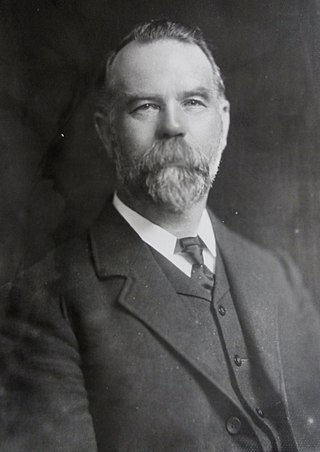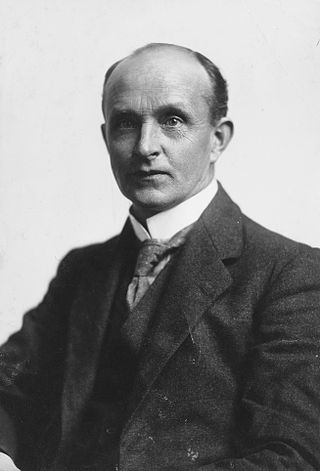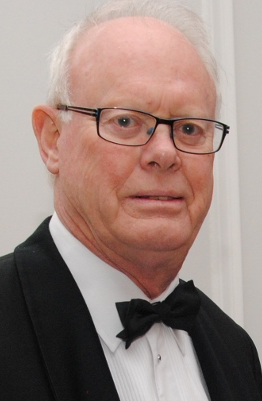
The speaker of the Australian House of Representatives is the presiding officer of the Australian House of Representatives, the lower house of the Parliament of Australia. The counterpart in the upper house is the president of the Senate. The office of the speakership was established in 1901 by section 35 of the Constitution of Australia. The primary responsibilities of the office is to oversee house debates, determine which members may speak, maintain order and the parliamentary and ministerial codes of conduct during sessions and uphold all rules and standing orders. The current speaker of the House of Representatives is Milton Dick, who was elected on 26 July 2022.

The House of Representatives is the sole chamber of the New Zealand Parliament. The House passes laws, provides ministers to form the Cabinet, and supervises the work of government. It is also responsible for adopting the state's budgets and approving the state's accounts.

In New Zealand, the speaker of the House of Representatives, commonly known as the speaker of the House, is the presiding officer and highest authority of the New Zealand House of Representatives. The individual who holds the position is elected by members of the House from among their number in the first session after each general election. They hold one of the highest-ranking offices in New Zealand. The current Speaker is Gerry Brownlee, who was elected on 5 December 2023.
The Dunedin Central by-election of 1915 was a by-election during the 19th New Zealand Parliament held on 3 February in the Dunedin Central electorate. The by-election was sparked by the resignation of the incumbent, Charles Statham, after irregularities in the counting of the vote during the 1914 general election turned a 10-vote lead for his competitor Jim Munro into a 12-vote loss. There were only two nominees.

Sir Charles Ernest Statham was a New Zealand politician, and the ninth Speaker of the House of Representatives, from 1923 to 1935.

Sir John Pearce Luke was a New Zealand politician. Luke was Mayor of Wellington from 1913 to 1921 and Member of Parliament for Wellington Suburbs 1908–1911 and Wellington North 1918–1928. His brother Charles Manley Luke had previously also been Mayor of Wellington in 1895. Sir John Pearce was nicknamed Peanut because he was short.

Tauranga is a New Zealand parliamentary electorate, returning one Member of Parliament to the New Zealand House of Representatives. The current MP for Tauranga is Sam Uffindell of the National Party, who won the seat in the 2022 Tauranga by-election, following the resignation of the previous MP, Simon Bridges of the National Party.

Wairarapa is a New Zealand parliamentary electorate. It was first created in 1858 and existed until 1881. It was recreated in 1887 and has since existed continuously. The current Wairarapa electorate MP is Mike Butterick.

Whanganui is a New Zealand parliamentary electorate. It was first established in 1860 for the 3rd Parliament and has existed continuously since then.

James (Jimmy) McCombs was a New Zealand Member of Parliament for Lyttelton.

James Wright Munro was a New Zealand politician of the Labour Party.
Dunedin Central was a parliamentary electorate in the city of Dunedin in Otago, New Zealand from 1881 to 1890 and 1905 to 1984.

The 1971 election of the Speaker of the House of Commons occurred on 12 January 1971, following the retirement of the previous Speaker Horace King. The election resulted in the election of Conservative MP Selwyn Lloyd, formerly Chancellor of the Exchequer and Foreign Secretary. It was the first election with more than one nominee since William Morrison defeated Major James Milner in the 1951 election.
The New Zealand Labour Party leadership election, 1940 was held on 4 April 1940 to choose the fourth leader of the New Zealand Labour Party. The election was won by Wellington Central MP Peter Fraser.

The 2014 election of the Speaker of the New Zealand House of Representatives occurred on 20 October 2014, following the 2014 general election result. The election resulted in the re-election of National Party MP David Carter as Speaker.

The 2013 election of the Speaker of the New Zealand House of Representatives occurred on 31 January 2013, following the retirement of the previous Speaker Lockwood Smith. The election resulted in the election of National Party MP David Carter.

The 2005 election of the Speaker of the New Zealand House of Representatives occurred on 3 March 2005, following the retirement of the previous Speaker Jonathan Hunt. The election resulted in the election of Labour Party MP Margaret Wilson.

The 2002 election of the Speaker of the New Zealand House of Representatives occurred on 26 August 2002, following the 2002 general election result. The election resulted in the re-election of Labour Party MP Jonathan Hunt as Speaker. It was the first time an incumbent Speaker had been re-elected since 1982.

The 1996 election of the Speaker of the New Zealand House of Representatives occurred on 12 December 1996, following the 1996 general election result. The election saw the incumbent speaker Peter Tapsell lose his parliamentary seat. It resulted in the election of National Party MP Doug Kidd as Speaker. It was the first time a vote for speaker had been contested since 1923.
















